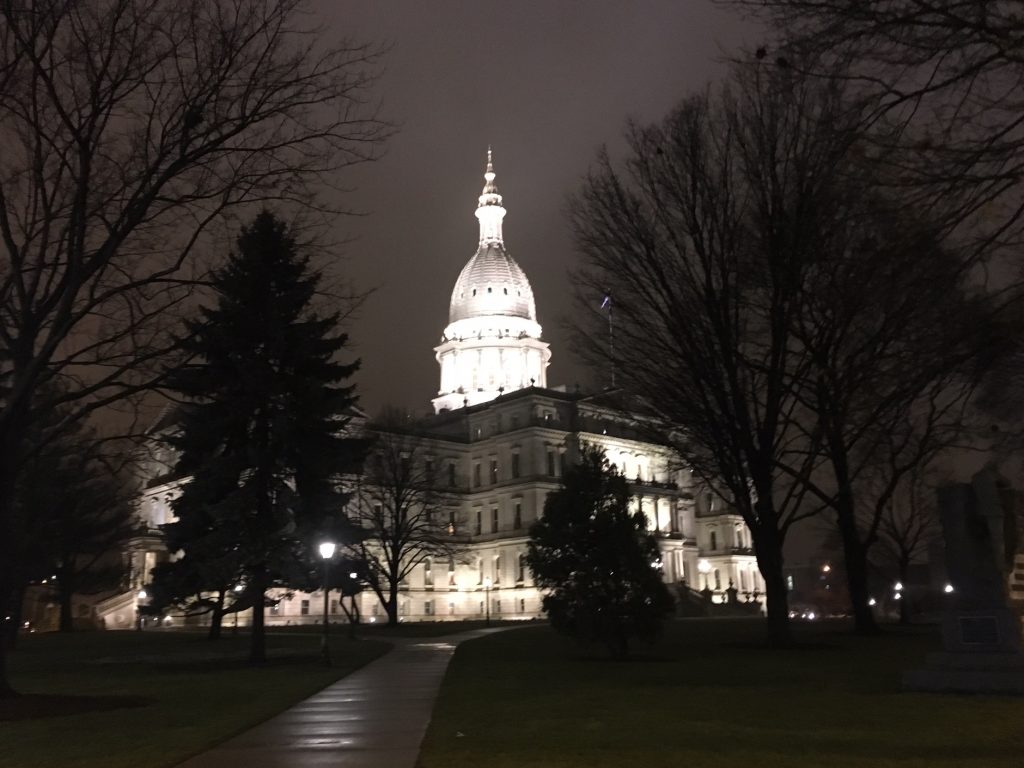MichMash: Attempt to Make Petition Campaigns More Difficult Could Backfire on GOP
“Longsighted, shortsighted — it’s really hard to tell when you’re passing these measures in the middle of the night.”


Republican state lawmakers are moving forward with measures that would make it more difficult to put questions on a statewide ballot.
It’s one of many controversial pieces of legislation “flying” through the Legislature’s busy lame duck session this month.
Among the proposed changes to the petition initiative is a requirement that no more than 15 percent of valid signatures come from a single congressional district in Michigan.
As part of the weekly series MichMash, Cheyna Roth and Jake Neher talk about why the bill could backfire on the GOP.
Click on the audio player above to hear that conversation.
What are the arguments for and against these changes?
The petition initiative process allows groups to collect signatures in order to change state law.
Republicans argue these changes are all about transparency and accountability for groups and people collecting signatures for petition campaigns.
However, Democrats say the proposals violate both the state constitution — which already lays out the requirements for petition initiatives — as well as the U.S. Constitution. They say the measures amount to voter disenfranchisement, in part because any signatures collected in each congressional district beyond the 15 percent limit would not count. And, they say, it wouldn’t just be burdensome for voters and campaigns, but also for public officials.
“It’s unworkable, it’s burdensome on the Secretary of State’s office without putting any additional resources for them to manage those issues, and it’s going to prevent a lot of people from enacting their right to petition their government and initiate law here in Michigan,” says state Rep. Jeremy Moss (D-Southfield).
And it’s not just Democrats who are concerned about the legislation
Right to Life of Michigan initially came out with concerns about the proposals. It’s one of the few groups in Michigan that has been able to get multiple questions on the statewide ballot in recent history.
Bill sponsor state Rep. Jim Lower (R-Cedar Lake) says those concerns were ironed out with Right to Life. He says he does not think the bills passed this week in the House are burdensome.
“Even (Right to Life agrees) that they can still get things on the ballot,” says Lower. “And I’m comfortable that voters and people circulating these measures can.”
Are Republicans shooting themselves in the foot?
Successful petition initiatives are not always decided on the ballot. They go first to the state Legislature, where they can either be adopted as-is, or sent to voters to decide.
Initiatives that are approved by lawmakers do not need to be signed by the governor to become law.
That means this is also a tool the Legislature can use to circumvent the governor on issues where the two branches of government disagree.
In 2018, Republican lawmakers proved they were willing to take that route when they realized Gov. Rick Snyder would veto any attempt to repeal Michigan’s prevailing wage law. To avoid that veto, they passed a petition initiative to get rid of prevailing wage — and the repeal became law without ever hitting the governor’s desk.
Looking forward to 2019 and beyond, the GOP will maintain their majorities in the state House and Senate, but they will no longer have a Republican in the governor’s office. Maybe the only chance they’ll have to enact controversial, conservative laws will be to make sure Gov.-elect Gretchen Whitmer doesn’t have an opportunity to veto that legislation.
This process will become more difficult either way. That’s because the number of valid signatures required for an initiative to succeed is based on the number of votes cast for governor. The high turnout in 2018 will raise that threshold. Republicans making these petition campaigns even more difficult could further limit their options.
